Tolu ‘Toolz’ Oniru-Demuren – Turning Inspiration Into a Voice For Women

Tolu Oniru-Demuren, widely known as ‘Toolz’, has one of the most popular voices on Nigerian airwaves. As a multi-award winning presenter, talk show host, and assistant director of programmes at Beat FM, she is already a media powerhouse. Not the least insecure about her figure, she has carved a niche for herself in the broadcast industry, while also serving as an inspiration for women all over world – especially curvy ladies.
With confidence and style that seem to flow from her scalp to her toenails, Toolz has consistently shared personal stories about her tough experiences before attaining her present height, a journey that has spurred her to educate and push others to find confidence and pride in themselves.
Since her return to Nigeria in 2009, Toolz has consistently dominated news headlines and social media trends, with conversations either covering her popular weekly radio show ‘Midday Show with Toolz’ or new photos on her social media pages – generating controversy among critics about her body shape and size.
Based on her personal experience with body image and finding self-esteem, the media mogul and business woman has decided on a bold move – to launch an inspirational brand for plus-size women trying to make a statement. As a plus-size celebrity, she found her way to wide recognition and acceptance through creativity, resilience and boldness.
In Nigeria, plus-size ladies are psychologically ostracized and consistently attacked, becoming subject of discourse among health and well-being experts on how to change the perception about body weight. Growing into confident ‘self’, Toolz stands out due to her self-confidence and unshaken ambition.
This, more than anything, is the message she intends to share with the new brand – something to change the lives of plus-size women. A brand that truly defines, represents, and captures every curvy woman’s beauty in and out.














